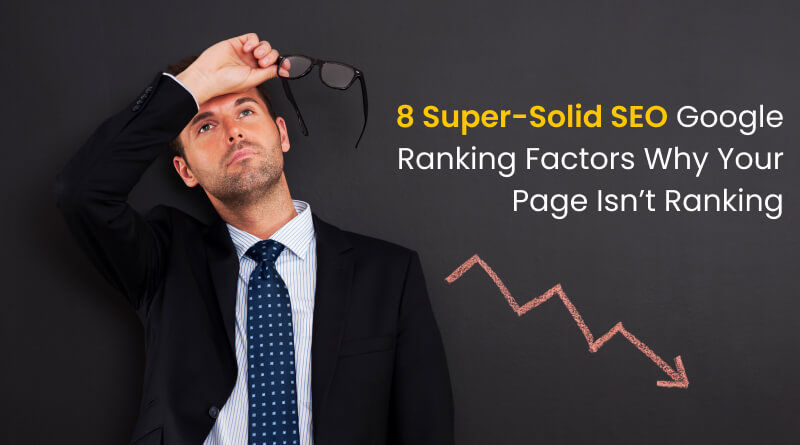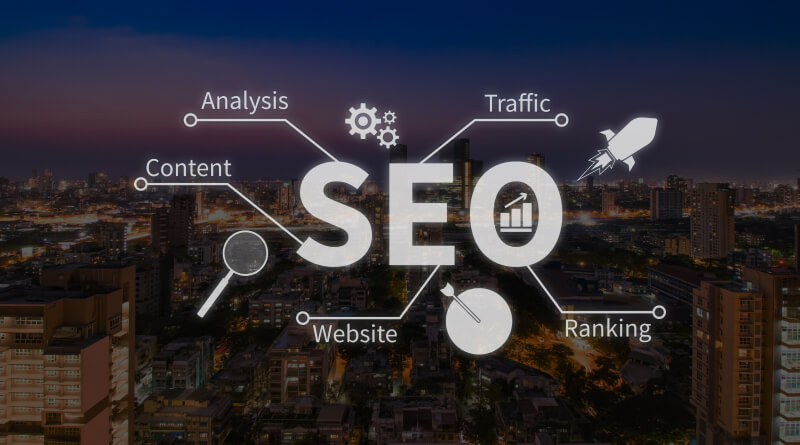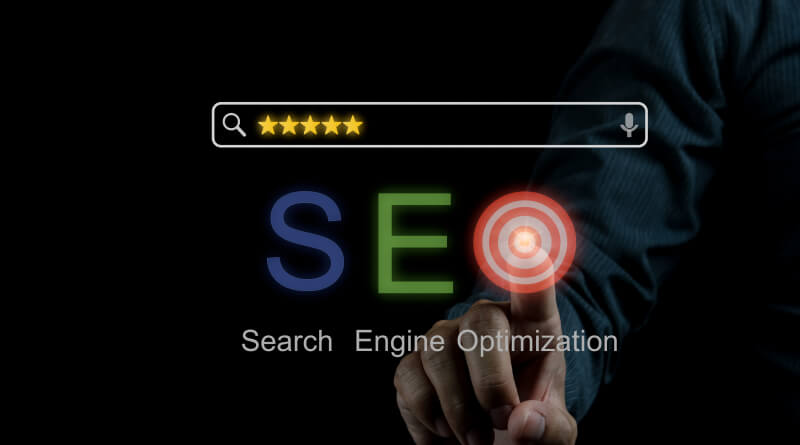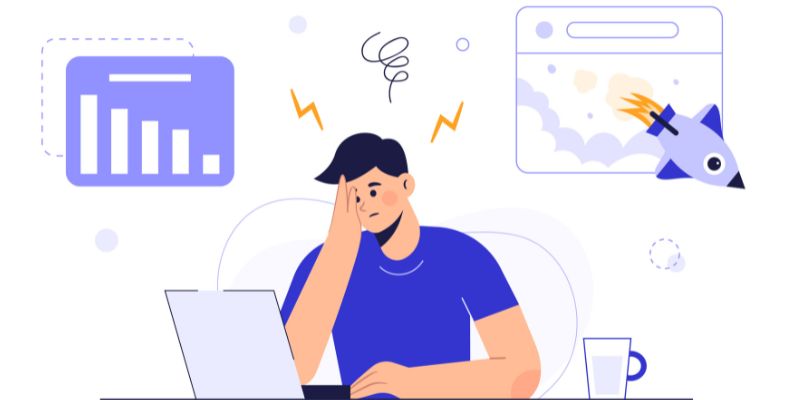8 Super-Solid Google Ranking Factors Why Your Page Isn’t Ranking
Having a strong online presence is crucial for both businesses and individuals. One of the key ways to establish this presence is by ensuring your website ranks well on Google. However, if your website isn’t showing up in search results, it could be due to various reasons related to search engine optimization (SEO) issues and SEO Google ranking factors.
We’ll explore 8 solid ranking factors why your page might be not ranking and how to solve them appropriately.
Table Of Contents
- Introduction
- Reason 1: Poor Keyword Optimization
- Reason 2: Lack of High-Quality Content
- Reason 3: Slow Page Loading Speed
- Reason 4: Mobile Unfriendliness
- Reason 5: Lack of Quality Backlinks
- Reason 6: Duplicate Content
- Reason 7: Mobile Unfriendliness
- Reason 8: Not Optimizing For Local SEO
- Final Words
Poor Keyword Optimization
Choosing the right words for your website is crucial for your customers and users to find you easily. Using uncommon words instead of what people search for, like saying “footwear” instead of “shoes,” can make it hard for them to find you. Also, putting too many keywords everywhere on your site makes it confusing, like repeating the same words repeatedly in a conversation.
If a website doesn’t have those words in the right places, it might not show up in the search rankings or results. This can be a big problem because it means fewer people will find the website. So, poor keyword optimization is one of the search engine optimization issues that can make it harder for the SEO ranking of website.
Keywords are the foundation of SEO. If your website doesn’t contain relevant keywords that people are searching for, it’s unlikely to rank well.
Some Practical Solutions
- Research keywords. Find out what words people use when searching for topics related to your niche. Tools like Google Keyword Planner can help.
- Use keywords naturally. Once you have your keywords, use them naturally. Don’t force them in where they don’t fit.
- Include keywords in titles and headings. Make sure your main keywords are in your titles and headings. This tells search engines what your content is about.
- Optimize meta tags. Meta tags like title tags and meta descriptions are important for SEO. Include your keywords in these tags to improve your visibility in search results.
Lack of High-Quality Content
The lack of high-quality content on a website can hurt its chances of ranking well. When people search for things online, Google tries to show them the best and most helpful results. If your website doesn’t have good content that answers their questions or provides valuable information, Google might not think it’s very useful.
To increase your SEO Google ranking, it’s important to focus on creating content that is helpful, informative, and easy to understand. This means writing articles, making videos, or creating other types of content that people find useful and interesting.
When you do this, people are more likely to visit your website, stay longer, and share your content with others. And, when Google sees that people like your content, it can easily increase Google ranking of your site in its search results.
Some Practical Solutions
- Look for websites for creators known for providing reliable information. These could be well-known news outlets, educational platforms, or respected authors.
- When searching online, use ‘filters’ to narrow down your results to reputable sources. Many search engines allow you to filter by criteria such as relevance, date, or source reliability.
- High-quality content comes in various forms, including articles, videos, podcasts, and infographics. Don’t limit yourself to just one format. Explore different mediums to find what suits you best.
- Check reviews and ratings. Before engaging, see if others have reviewed or rated it positively. This can give you a good indication of its quality and relevance to your needs.
- Always double-check the information you find, especially if it seems too good to be true. Look for multiple sources confirming the same facts to ensure accuracy.
Slow Page Loading Speed
Slow page loading speed means that when you try to open a webpage, it takes a long time for all the stuff on that page to show up. It’s like waiting for a slow train to arrive at the station. This can happen because of many reasons, like too many big pictures or videos on the page, or the website’s server being too busy.
When it comes to Google search engine ranking, having a slow loading speed can be a big problem. Google wants to give people the best experience when they search for stuff, so they prefer websites that load quickly.
So, it’s important to make sure your website loads fast if you want to rank well on Google and be easily found by people searching for information.
Some Practical Solutions
- Make sure the images on your website are not too large. You can use tools to compress them without losing quality.
- Enable browser caching. It will allow your website to store certain files on a visitor’s computer so they don’t need to be downloaded again on a visitor’s computer so they don’t need to be downloaded again on subsequent visits.
- Remove any unnecessary spaces, line breaks, or comments in your CSS and JavaScript files to reduce their size.
- Reduce HTTP requests. Each element on your page, like images, CSS files, and scripts, requires a separate HTTP request. Try to reduce the number of elements on your page to speed up loading.
- Optimize server response time. Work with your hosting provider to optimize server performance, which can significantly impact loading speed.
Mobile Unfriendliness
Mobile unfriendliness refers to websites or web pages that are not designed to work well on mobile devices like smartphones or tablets. When a website is difficult to use or doesn’t display properly on a mobile screen, it can frustrate users and make it harder for them to find the information they need.
When it comes to search engine ranking, it prioritizes mobile-friendly in its search results. If a website isn’t mobile-friendly, it may not rank as high in Google search results, which means fewer people may find it when they’re searching for relevant information. So having a mobile-friendly website can make it easier for people to find your site.
Some Practical Solutions
- Make sure your website or app adjusts its layout to fit different screen sizes, including smartphones. This helps users navigate without zooming in or out.
- Use a clear and easy-to-understand menu that’s easy to access with a tap, and avoid overcrowding it with too many options.
- Make buttons and text bigger so they’re easier to tap and read on smaller screens. This reduces the chances of users accidentally tapping the wrong thing.
- Use compressed images and videos to reduce loading times on mobile devices. Slower loading times can frustrate users.
- Ask people to test your website or app on different mobile devices to identify any issues and get feedback on how to improve.
Lack of Quality Backlinks
Backlinks from reputable websites are a significant ranking factor for Google ranking algorithms. They are links from other websites that point to your website. ‘Lack of Backlinks’ means that your website doesn’t have many good links from other sites.
Quality backlines are links from reputable and relevant websites. When you don’t have enough of these, it can affect your website’s visibility in search engines like Google.
If your website lacks them, it may struggle to rank competitively.
h2>Some Practical Solutions
- Write articles or do guest blogging for other websites in your niche. This allows you to include a link back to your site in the author bio or within the content itself.
- Find broken links on other websites and suggest your own content as a replacement. This helps website owners fix their broken links while gaining you a quality backlink.
- Connect with influencers or experts in your industry and ask them to share your content with their audience. It can lead to increased visibility.
- Engage in forums, social media groups, and communities related to your niche. By providing helpful insights and solutions, you can naturally attract users from other sites too.
- Submit your website to relevant online directories and listings. Make sure to choose reputable directories for the best results.
Duplicate Content
Duplicate content can confuse the search engines and lead to lower rankings. It is like having two or more copies of the same book. When search engines like Google find duplicate content, they might not know which version to show in search results, which can confuse users.
To avoid this, it’s essential to make sure your content is unique and original. You can check if your content is similar to the content on the web by using the “<check Google Page Rank” feature. It helps you see if your content is ranked best or not.
Another thing to keep in mind is to ensure each page on your website offers unique and valuable content. It will prevent your website from getting penalized by Google’s ranking factors.
Some Practical Solutions
- Make sure each page on your website has unique information. Avoid copying content from other websites.
- If you have multiple URLs pointing to the same content, use 301 redirects to direct users and search engines to the preferred URL.
- Consolidate similar pages. If you have several pages with similar content, consider combining them into one comprehensive page to avoid duplication.
- For pages that you don’t want to appear in search results, use the “no index” meta tag to prevent search engines from indexing them.
- Regularly monitor your website for duplicate content issues using Google Search Console. It can help you identify and fix any issues quickly.
Missing Meta Tags
Missing meta tags can be one of the major Google ranking factors. Meta tags are bits of code in the HTML of your website that provide information about the content. They help offer information about the content and also let search engines understand what your webpage is about.
If the meta tags like the title tag or meta description are missing, search engines might not properly index your page. This means your website could be harder to find when people search for related topics. So if you want your site to show up higher in Google searches, make sure you have all the necessary meta tags.
Some Practical Solutions
- Ensure each page has a descriptive title tag that accurately summarizes the page content. Use keywords related to your content.
- Write a brief and relevant description of the page content in the meta description tag. This helps users understand what the page is all about.
- If you’re sharing a page on social media platforms like Facebook, include Open Graph tags to control how your content appears when shared.
- Make sure your webpage is mobile-friendly by using the viewpoint meta tag to set the viewpoint width and scale.
Not Optimizing For Local SEO
When we talk about “Not Optimizing For Local SEO” in the context of Top Google Ranking Factors, it means not making your website or online presence friendly for local searches in Google. Let us break it down for you to understand thoroughly.
Local SEO is about making sure that when someone searches for something in their local area, like a restaurant or a plumber. Google shows them the most relevant results nearby. So, if you’re a business, optimizing for local SEO means making it easier for Google to understand where you are and what you offer.
Now, when you don’t focus on optimizing for local SEO, it means you might miss out on potential customers who are looking for businesses like yours in their area. This can affect your website’s Google ranking in search results.
Some Practical Solutions
- Use local keywords. Include keywords that are specific to your local area in your website content. For example, if you’re a bakery in New York, use the keywords like “best bakery in New York” or “New York City bakery.”
- Make sure your title tags, meta descriptions, and headers include your location and relevant keywords. It helps search engines understand what your website is about and where you’re located.
- Claim your ‘Google My Business’ listing. Make sure your business information is accurate and up-to-date on Google My Business. It will help your business show up in local search results and on Google Maps.
- Try to create local-based content. Write blog posts or create pages that are specific to your local area. You can write about local events, news, or anything else relevant to your community. Such a thing will help you engage with the local audience
- Encourage online reviews. Positive reviews on platforms like Google My Business can boost your visibility in local search results. You can also encourage happy customers to leave reviews and respond to them.
Partner with our Digital Marketing Agency
Ask Engage Coders to create a comprehensive and inclusive digital marketing plan that takes your business to new heights.
Final Words
Ranking well on Google requires a combination of strategic SEO Tactics, high-quality content, and a focus on providing value to your audience. By addressing the common reasons outlined in this blog post and continuously optimizing your website, you can improve your chances of Google ranking factors and reaching your target audience effectively.
Remember, SEO is a long-term investment, and results may not be immediate. Stay patient and consistent in your efforts, and you’ll likely see improvements in your website’s Google rankings over time, in line with Google ranking factors.
This blog covered some important points related to why many websites or web pages don’t rank well on Google. We have also offered some practical points that people can use to tackle the problems.
If you’re interested and want your content to rank on Google search engines then, you can consult with our IT experts now. At Engage Coders, we help our clients reach the potential that they are looking for. We help them offer the best digital marketing strategies and practices from which they can gain more profit, build better customer engagement, and boost their leads for more conversions. Browse our other blogs to learn more about what’s trending in digital marketing today!

































